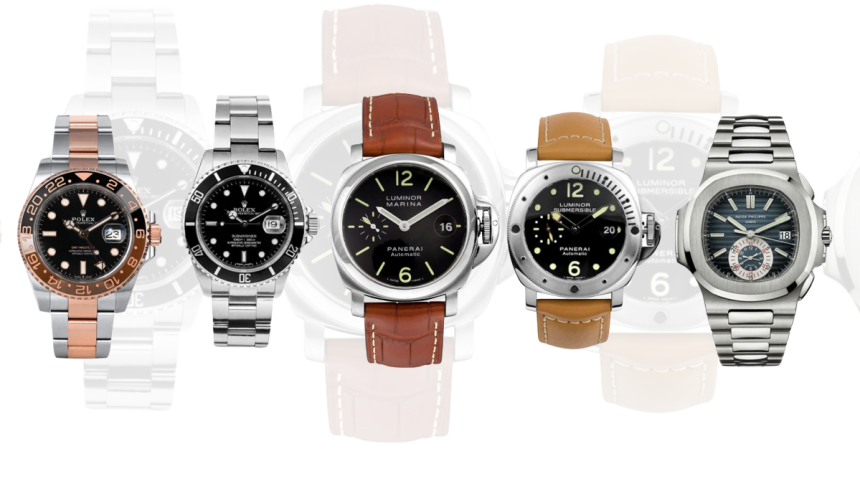A luxury watch isn’t just about craftsmanship or heritage or price tag. It’s about how you carry it—and how it carries you. Anyone who’s worn one knows the quiet confidence it brings, the way it anchors your wrist with purpose. But what often gets missed in the conversation is what it takes to actually take care of the thing. Not in the “use a polishing cloth twice a day” sort of way, but in the real-life way. The way that involves both keeping your watch pristine and keeping yourself grounded.
Let’s not pretend like everyone’s life is polished steel and sapphire glass. We all go through periods where taking care of anything—let alone something expensive—can feel heavy. The watch doesn’t judge. But it does deserve some attention. And the act of maintaining something meaningful, especially something you chose for yourself, can be oddly therapeutic. Let’s get into what that looks like.
Don’t Let Neglect Become The Default
It starts small. You set it down on the bathroom counter instead of the felt-lined tray. You skip the gentle wipe-down because you’re running late. You tell yourself you’ll take it in for service “next month” even though that’s what you said three months ago. And it’s fine—until it’s not.
Caring for your watch doesn’t have to be fussy or obsessive. It’s just a habit, and habits build identity. When life feels overwhelming or aimless, having a ritual—yes, even one as simple as winding your watch before bed—can anchor you. Mental health professionals talk about the importance of micro-acts of control. This is one of them. You’re not polishing it to impress anyone. You’re doing it because you’re worth the effort.
And if your watch is starting to look like it’s been through something, you’re not alone. But if the scuffs are bothering you, there’s a way to make it right. Invest in a proper tool to remove scratches from watch crystal—you’ll find products made for the job, not gimmicks. The difference it makes isn’t just visual. There’s something quietly satisfying about erasing the damage and watching your reflection come back into focus.
Let It Breathe, Literally
Your wristwatch is tougher than it looks, but it’s still not built for every environment you throw at it. Sweat, steam, dirt, sunscreen—these things aren’t its friends. So while it may look great layered under a cuff at a summer wedding, don’t forget to give it a break when you’re doing things that aren’t so, well, refined.
Wearing your watch too tight can trap moisture against your skin and the case. That doesn’t just make it uncomfortable; over time, it can also degrade the strap or even the gaskets that help keep it water-resistant. Leather straps especially need breathing room and an occasional rest from your wrist altogether. Rotate in another watch now and then. You’ll extend its lifespan and give yourself a small style refresh in the process.
And don’t store it in a random drawer. That’s how they get scratched, magnetized, or damaged by moisture. A proper box or stand keeps it protected and visible—so you’re more likely to wear it. Out of sight really does mean out of mind, and that’s how watches end up dead in a junk drawer when they were meant to outlast you.
Routine Maintenance Is Not Just for Cars and Teeth
If you drive a car, you (hopefully) get the oil changed. If you have teeth, you (hopefully) see a dentist. Your watch, in the same way, deserves a professional check-in now and then. Not because it’s needy, but because it’s a machine with moving parts that will wear down without upkeep.
Every three to five years is the general rule for a service, depending on the movement. Automatic watches in particular need internal cleaning and lubrication to keep the gears running smoothly. Skipping this can cause damage that’s both expensive and unnecessary. And when you hand it over for service, you’re not just buying time—you’re respecting the time it’s already given you.
There’s also something mentally beneficial about these intervals. You remember where you were the last time you had it serviced. Who you were, even. It’s a weird, tangible way to mark personal growth. If your watch has been with you through big life shifts, taking care of it becomes symbolic. Like you’re honoring the version of yourself who bought it in the first place.
Treat It Like A Keepsake—Because It Will Be
Even if you didn’t buy your watch with legacy in mind, chances are you’ll think differently as the years pass. Wrist watches age with us. They get a bit more character, a few more stories. At some point, they become part of what we leave behind. And while that might sound a little heavy, there’s something undeniably beautiful about it.
If the idea of passing down something as personal as a watch doesn’t appeal to you yet, think about what it means to own something built to last. In a world of fast upgrades and planned obsolescence, a mechanical timepiece stands in quiet rebellion. It’s not trendy. It’s timeless. And caring for it becomes a kind of ritual that connects you to something steadier than news alerts and algorithmic chaos.
There’s also no shame in getting a watch that marks a hard-earned milestone—a promotion, a fresh start, a moment where you chose to invest in yourself instead of waiting for someone else to validate you. That watch is a luxurious gift, and not in the way influencers mean it. It’s luxury because it lasts, because you decided it mattered, because it made you feel like someone worth showing up for.
Watch Care Is Self-Care—Really
Taking time to clean your watch might seem like the last thing you want to do when your mental health is struggling. But that’s when it can help the most. It’s a small win. A reminder that you still have agency. That you can take care of something. That you can finish a task. It’s not about being productive. It’s about reconnecting with the parts of yourself that still believe in showing up.
If you’ve been in a slump—emotionally, physically, or both—start here. Not with the gym membership. Not with the perfectly curated “mental health day.” Just wipe the dust off the case. Wind it. Put it on, even if you’re not going anywhere. Feel its weight. It doesn’t fix everything, but it helps you remember who you are. And when everything else feels unstable, that’s not nothing.
It’s okay if your watch has a few dings. So do you. But it still runs. And so do you.
What Time Left You With
There’s nothing frivolous about caring for something you worked hard for. A watch might seem like a small detail, but it can hold more meaning than anything else you wear. It carries time—your time. And whether you’re in a season of growth or a period of getting by, giving that watch a little attention can remind you that you’re still moving forward. Time doesn’t pause. But you can. And sometimes, that’s exactly what taking care of your watch—and yourself—really means.
Lynn Martelli is an editor at Readability. She received her MFA in Creative Writing from Antioch University and has worked as an editor for over 10 years. Lynn has edited a wide variety of books, including fiction, non-fiction, memoirs, and more. In her free time, Lynn enjoys reading, writing, and spending time with her family and friends.















